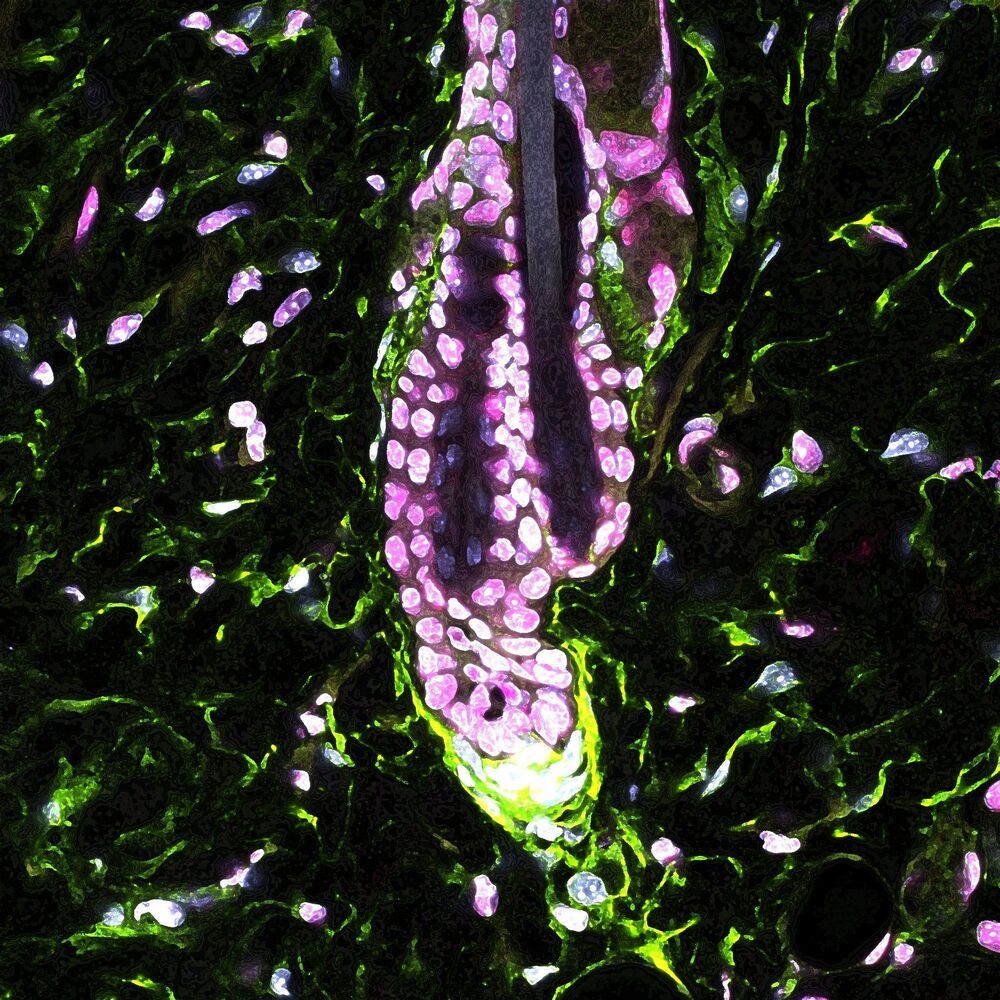Harvard University researchers have identified the biological mechanism of how chronic stress impairs hair follicle stem cells, confirming long-standing observations that stress might lead to hair loss.
In a mouse study published in the journal Nature, the researchers found that a major stress hormone causes hair follicle stem cells to stay in an extended resting phase, without regenerating the hair follicle and hair. The researchers identified the specific cell type and molecule responsible for relaying the stress signal to the stem cells, and showed that this pathway can be potentially targeted to restore hair growth.
“My lab is interested in understanding how stress affects stem cell biology and tissue biology, spurred in part by the fact that everyone has a story to share about what happens to their skin and hair when they are stressed. I realized that as a skin stem cell biologist, I could not provide a satisfying answer regarding if stress indeed has an impact—and more importantly, if yes, what are the mechanisms,” said Ya-Chieh Hsu, Ph.D., the Alvin and Esta Star Associate Professor of Stem Cell and Regenerative Biology at Harvard and senior author of the study. “The skin offers a tractable and accessible system to study this important problem in depth, and in this work, we found that stress does actually delay stem cell activation and fundamentally changes how frequently hair follicle stem cells regenerate tissues.”
